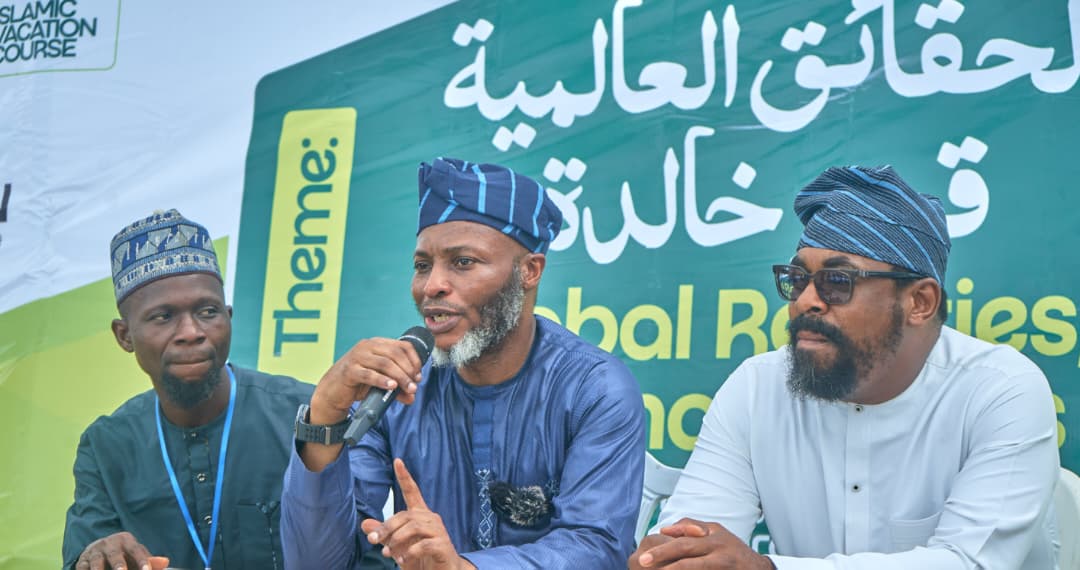Nigeria stands at a crossroads. Our vast arable land, youthful population, and growing technology sector could form the foundation of a rural economy that is productive, sustainable, and secure. More than 54 percent of males and 51 percent of females are younger than 20 years old (National Bureau of Statistics, 2020), giving the nation a demographic advantage.
However, rapid urbanization has seen the urban population rise to about 100 million residents (UNEP, 2019), creating rural-urban disparities that threaten agricultural productivity. Among adults aged 15 years and above, only 15.0 percent of men and 22.9 percent of women operate their own non-farm enterprises, while 29.5 percent of men and 19.6 percent of women engage in farming. (National Bureau of Statistics, 2020). This shrinking engagement in agriculture comes at a time when national food production needs are more urgent than ever. A National Rural Innovation Strategy is no longer optional. It is a matter of economic survival, food security, public health, and national security.
Strategic Collaboration for Agricultural Transformation
Recent developments show that Nigeria already has the political will and technical expertise to make this vision a reality. The Minister of Communications, Innovation and Digital Economy, Dr Bosun Tijani, has called for the urgent adoption of digital technologies in agriculture to boost food production, curb rising prices, and reduce our dependence on imports.
His collaboration with the Minister of Agriculture and Food Security has brought the conversation to the highest levels of government. At the International Institute of Tropical Agriculture (IITA), both ministries explored how digital innovation can transform agricultural outcomes, from seed tracking to plant health diagnostics, supported by tools developed within Nigeria. This kind of high-level partnership demonstrates that a coordinated approach is possible, and it is essential if Nigeria is to secure its food systems and safeguard its borders from economic shocks.
Global Partnerships for Local Impact
Nigeria’s endorsement of the Food and Agriculture Organization’s Digital Village Initiative adds an international dimension to this effort. This flagship project seeks to embed digital innovation across agricultural value chains, directly tackling the productivity and socio-economic challenges faced by rural farmers. The Minister of Agriculture described it as a timely and transformative step aligned with our national development goals. If scaled strategically, this partnership could accelerate the adoption of mobile platforms, precision mapping, and remote sensing, ensuring rural communities gain the benefits of innovation without being left behind.
Linking Agriculture to Health and Chronic Disease Prevention
A rural innovation strategy is also a public health investment. Non-communicable diseases such as diabetes, hypertension, and heart disease are on the rise in Nigeria, fueled in part by limited access to fresh, affordable produce. Innovation in agriculture can make healthy foods available year-round, reduce reliance on processed imports, and connect farmers directly to local markets, schools, and health centers. Innovation hubs in rural areas could double as nutrition education centers, helping communities adopt diets that prevent chronic diseases and ease the burden on our health system.
Program Evaluation for Accountability and Impact
However, innovation without accountability is a wasted opportunity. Every initiative under a National Rural Innovation Strategy must be built on a robust program evaluation framework to measure outcomes, identify gaps, and scale what works. Evaluation can track not just the number of farmers trained or hectares cultivated, but the real impact on yields, household incomes, health outcomes, and community resilience. Using both quantitative and qualitative approaches, Nigeria can ensure that investments in rural innovation deliver measurable and sustained benefits. This evidence-based approach will strengthen policymaking, guide resource allocation, and build public trust in the strategy.
National Security and Economic Resilience
Food security is national security. A nation that cannot feed itself is vulnerable to economic shocks, border instability, and external political pressure. By modernizing rural agriculture, we not only safeguard our food supply but also create jobs, reduce rural-urban migration, and secure our borders by making border communities economically self-reliant.
The Call to Action
Nigeria’s rural future depends on a coordinated, well-funded, and inclusive strategy that brings together government, the private sector, academia, and international partners. We cannot afford to remain in urban silos. Every rural community must have access to the tools, training, evaluation mechanisms, and infrastructure needed to thrive in the 21st century.
The building blocks are already in place. The question is whether we will connect them into a coherent national strategy that delivers prosperity, improves health, and secures our nation’s future.
ASEMOKHAI Oluwatosin is a research fellow with more than a decade of experience in agricultural extension, specializing in community development, policy engagement, and programme evaluation. A graduate of Landmark University, she has contributed to multiple research initiatives on agricultural innovation and extension systems. Her work bridges agriculture, technology, and health, with a focus on strengthening food security, driving digital transformation in rural communities, and promoting nutrition-based strategies for the prevention and management of chronic diseases.
Through her use of inclusive evaluation models, Oluwatosin champions development efforts that are fair, results-oriented, and adaptable. Her approach is particularly valuable in contexts, where boosting agricultural productivity, ensuring health equity, and expanding digital access are essential for strengthening economic resilience, protecting national security, and safeguarding livelihoods.
• Asemokhai Oluwatosin, a graduate of Landmark University, is a Research Officer and Program Evaluation Specialist (Agricultural Development). She can be reached at [email protected]






